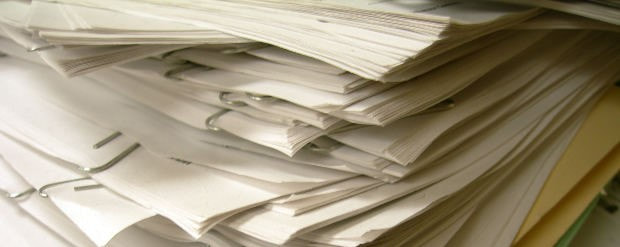|
Losing your partner is hard and horrible, whether it's sudden or you’ve been living with anticipatory grief for days, months or even years. At a time when you are finding it hardest to function, and your widow brain is leaving you in a fog, you have to deal with all the admin that comes with a death.
Sadmin is exhausting and heart-breaking, especially as it's something we never dreamed of having to do. I had the support of my amazing mother-in-law who was grieving Tim's loss too, but in the end, much of it was something I had to do alone. It's also horribly overwhelming. I set myself the target to do at least one thing every day. Sometimes it was only one. Tim's heart stopped unexpectedly but paramedics were in attendance, so I didn't have to arrange a medical certificate or contact a coroner – this was done for me. If the death is unexpected, call 111 for advice. If someone dies in hospital, the hospital will issue the medical certificate. If they die abroad, you will need to register the death in that country. The local British embassy, high commission, or consulate will help. Where to start In a daze I started by searching the web – it's what I always do when I'm stuck. I found the incredibly useful What to do when someone dies: step by step government website. In the four and a half years since I needed to use it, it's been expanded. There are other government resources on death and bereavement. Registering his death was painful, as it made it finally so real, but the registrar was kind. She advised me to get multiple copies of the death certificate, which was very useful. She also told me about the Tell Us Once service that passes the information on to all government departments. My mother in law, who had also been searching, told me about the bereavement support payment, which helped while I wasn't up to working full time. Banks and building societies need to be informed, as do pension companies and life insurance companies. These should have bereavement helplines designed to make things easier, but some are better than others. The Death Notification Service covers a number of banks and building societies all at once, but doesn't cover all of them. Settld covers financial services, online and social media, household services and utilities, and Life Ledger covers a range of companies, from banks, insurers and pension providers to gas, water, telecoms and social media. Another set of links I found useful were the organisations that notify advertising phone and mail lists, which cut down on a lot of junk mail with his name on it. I do still get the occasional call – when they ask to speak to Tim Dudley I say, "that would be hard as he's been dead since 2018". Sometimes widow humour is the only way to survive.
Tim died intestate, and I handed this over to a lawyer. I could have done it myself, but at the time I just couldn't deal with it, along with everything else, and the money seemed a worthwhile thing to pay. For people who have died with a will, the government website has information on applying for probate. Other things that come up under sadmin:
Sadmin is made easier with plans in place – however, Tim died suddenly and unexpectedly, so I didn't have any passwords or lists of accounts, and couldn't access his email. The two sides of sadmin Writer and activist George Monbiot wrote about sadmin in the Guardian, after trying to cancel his late mother's Vodafone mobile phone contract. He got passed around the system, experienced hostility and rudeness, and faced demands from people to speak to his frail and confused father, despite Monbiot having power of attorney. Finally, after three months, Monbiot's sister cancelled the direct debit and wrote to HQ. Monbiot's father then faced a barrage of calls from a debt collection agency (thankfully fielded by his carer). Monbiot tweeted about this, starting a thread of hundreds of posts from people facing similar awfulness. One was still paying for her late daughter's mobile a year after her murder. People I know have had call handlers ask to talk to the account holder, and have brought urns to the phone, or suggested conversations through mediums. Another example of widow humour. I generally had fairly good experiences. There was the threat to take Tim to court for not paying a bill that had gone to his email, and they backed off immediately when I explained. There was one that was tough but that turned out well. Tim had a bank account, a loan, and a business account. Closing the bank accounts wasn't too hard, and I was told verbally that the loan was to be written off, as Tim had no liquid assets. However, the letters continued to arrive. I went round and round, until I finally got to someone who said that it wasn't his department, but that he would put me on hold and do the 'going around' for me. Every now and then he'd pop back on the line to make sure that I was okay. He finally got to the woman in the bereavement department who I'd spoken to before. She confirmed that the loan was written off, that she would make sure that the letters stopped (the letters that helpfully said, 'contact us below' and there was nothing below), and if any more letters arrived I should tear them up or send them to her. I cried with relief, and told her to make sure that her manager and the manager of the man who put me onto her knew about what had happened, and how great they had been.
1 Comment
Warning. Some swearing.
As I said in part 1, people have some odd perceptions of widows. There is an idea that widows, especially widows without children, cash in pensions and life insurance and live giddily, splashing the cash and living the life of Riley. Flash car. Foreign holiday. This idea of all widows being wealthy is far from the truth. In the UK in 2021, over 1.5 million widows lost out on pension income after their partners died, and 59% experienced a sharp drop in income following bereavement. People who are widowed lose their partner's income. Especially if they are not married, they may not get access to their partner's pension or life insurance. Unmarried widows may also lose their home. Bereavement support payments only go to people who are married or civil partnered. Some of us, after we were widowed, did press the Fuck-It button a few times. A new car (or a car new to us). A holiday. Gorgeous boots.* Being a widow is pretty shitty, and that little fizz of dopamine is sometimes just what we need. But I think I speak for pretty much all of us when I say that we would rather live in rags and in a cardboard box with the person we loved than have all the money in the world. *Yes. That one was me. You can get a Funeral Expenses Payment from the government if you get certain benefits. This money can go towards:
The payment can be claimed within 6 months of the funeral. You can claim by phone or post. The money will be deducted from any money that you get from your partner's estate, not including a house or personal things. You can get Bereavement Support Payments from the government. This is not a means tested payment, and is open to people whose husband, wife or civil partner died in the last 21 months, provided that the late partner paid National Insurance contributions for at least 25 weeks in one tax year, or if they died because of a work-related disease or accident. You will get £2,500 as an initial payment, and £100 a month.
Claiming within 3 months of the death means that you will get the full amount, but you can claim up to 21 months after their death. You can apply online, by phone or by post.  The cost of living is climbing, and that puts a squeeze on all of us. Here are some hints and tips that might help a little, and some of them will help the planet too. People who are widowed don't just lose their partner – they lose their partner's income, and may lose access to their partner's pension and their home. These are part of the secondary losses. Money is the last thing we want to have to worry about while we are grieving. Benefits and grants Make sure that you are claiming all the benefits that you are due. The Citizens Advice Bureau can help. For new widows, there are some specific benefits, including the funeral expenses payment and the bereavement support payment. The support payment is currently only due to husbands, wives and civil partners, but this is set to change in 2022.
Heating, lighting and hot water
Broadband, phone and TV
Food shopping
Cooking
Transport
Shopping
Keeping fit
Budgeting, saving and borrowing
Other
Other resources Citizens Advice: If you are struggling with living costs Martin Lewis' MoneySavingExpert website, including Tips, Tricks and Treats StepChange, a debt charity Money Advice Trust |
AuthorI was widowed at 50 when Tim, who I expected would be my happy-ever-after following a marriage break-up, died suddenly from heart failure linked to his type 2 diabetes. Though we'd known each other since our early 20s, we'd been married less than ten years. Archives
July 2024
Categories
All
|




 RSS Feed
RSS Feed